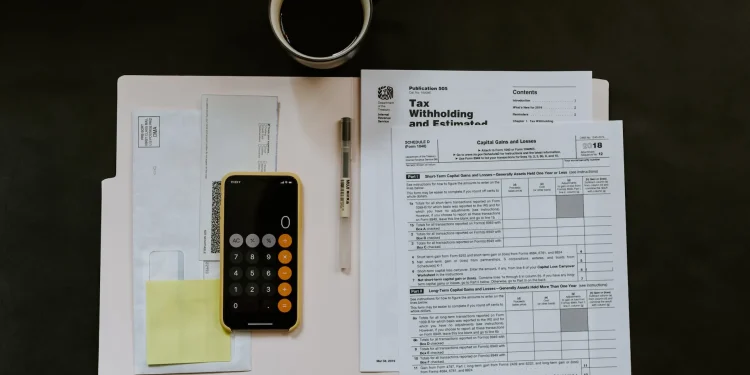One thing that we did not really learn at University, was the tax implications of investing, when you come to start investing yourself, this becomes much more important. It is important to remember, that we are not tax specialists, and you should use this information to be indicative of some tax laws, but it is by no means comprehensive and could not replace speaking with a qualified professional.
Overview of the UK tax system for investing
1. Capital Gains Tax: If you sell an investment for more than you paid for it, you will be subject to capital gains tax (CGT) on the profit. The rate of CGT depends on your income tax bracket and the amount of the gain.
2. Dividend Tax: If you invest in UK companies that pay dividends, you will be subject to dividend tax. The rate of tax on dividends depends on your income tax bracket and whether you have used your tax-free dividend allowance. Dividend taxes are complicated depending on lots of different factors.
3. Income Tax: If you receive income from your investments, such as rental income from property or interest from savings, you may be subject to income tax on that income. This is important if you have a wide variety of investments and not just ETFs.
4. Inheritance Tax: If you pass away and leave assets to your relatives, your estate may be subject to inheritance tax. The rate of inheritance tax depends on the value of your estate and any exemptions or reliefs that may apply. This is important when you start thinking about generational wealth building.
5. Stamp Duty: If you purchase property or shares in the UK, you may be subject to stamp duty. The rate of stamp duty depends on the value of the property or shares. Directly from the UK government website “When you buy shares, you usually pay a tax or duty of 0.5% on the transaction. If you buy: shares electronically, you’ll pay Stamp Duty Reserve Tax ( SDRT ) shares using a stock transfer form, you’ll pay Stamp Duty if the transaction is over £1,000.”
6. Tax Relief: Some investments in the UK may be eligible for tax relief, such as the Enterprise Investment Scheme (EIS) and Seed Enterprise Investment Scheme (SEIS). These schemes offer tax relief to individuals who invest in certain small or start-up companies.
Taxes and ETFs
You are exposed to a number of these taxes when you purchase ETFs. However, some ETFs are structured to be more tax-efficient than others. For example, distributing ETFs is designed to pay out dividends and interest, whereas accumulating ETFs reinvest these payments into the fund. Depending on your tax situation, one type of ETF may be more beneficial than the other. This is really important to look at but you really have to consider your own financial and tax implications!
Taxes on international stocks
This is when things can get really complicated, especially when investing in US companies. US Taxes: If you invest in US companies, you may be subject to US taxes, such as income tax, capital gains tax, and dividend tax. The specific taxes you may be subject to will depend on the type of investment and the amount of income or gain you earn from it. Non-US residents are generally subject to a flat 30% withholding tax on dividends paid by US companies.
You can also be impacted by the rules from the UK. The UK has a double taxation agreement with the US, which means that you will not be taxed twice on the same income. However, you may need to report your US income on your UK tax return and claim a credit for any US taxes paid. It’s important to understand these rules and speak to a tax professional.
There are a number of tax-efficient investment vehicles when investing in US companies through tax-efficient investment vehicles, such as an ISA or a SIPP, which can help reduce the tax implications of investing in the US. These accounts provide tax benefits for UK residents and may also help reduce the impact of US taxes.
All of the above feels a little bit of doom and gloom, however, there is some good news, stocks and shares ISAs can be a very tax-efficient way to invest especially for UK investors. Qualifying investments, including stocks, shares, investment trusts, and bonds, with any income or gains, earned tax-free. For the tax year 2022/23, the annual contribution limit for Stocks and Shares ISAs is £20,000, and the ISA is transferable, allowing investors to switch to a different provider or ISA type without losing the tax benefits. However, as with any investment, there are risks involved, and it is critical to seek professional advice to ensure that the investment aligns with an individual’s investment goals and risk tolerance.
Want to learn how to maximize your returns in the market? Our previous post about investing in a currency provides essential insights and tips to help you do just that. Click through to access it now.







